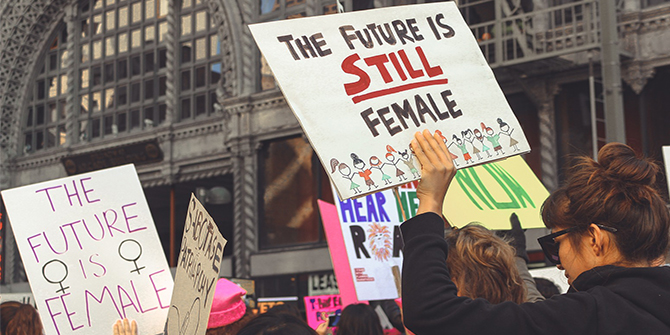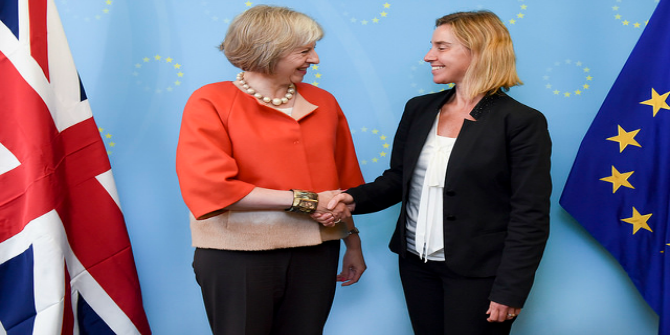
 We tend to think of resilience as being able to ‘bounce back’ from crises – to manage and overcome adversity. But Hardeep Aiden and Katherine Runswick-Cole argue that building resilience is about more than developing ‘soft skills’. It’s about having access to a supportive network of resources and relationships in the first place.
We tend to think of resilience as being able to ‘bounce back’ from crises – to manage and overcome adversity. But Hardeep Aiden and Katherine Runswick-Cole argue that building resilience is about more than developing ‘soft skills’. It’s about having access to a supportive network of resources and relationships in the first place.
In February the All Party Parliamentary Group (APPG) on Social Mobility released its Character and Resilience Manifesto. Focusing on children and young people, the report is replete with policy recommendations to develop ‘character and resilience’. These include extending the pupil premium policy into early years education and a recommendation that Ofsted build ‘character and resilience’ measures into its inspection framework.
The launch of the Manifesto marks a year since the cross-party group’s Character and Resilience Summit. The Summit stressed that character, resilience and other related ‘soft skills’ are vital for later life chances (and by extension social mobility) and that they can be developed and taught throughout the life course if the appropriate policies and infrastructure are in place.
But we believe that developing resilience is about more than ‘building character’. Our research with disabled people at different stages of the life course has underlined the importance of viewing resilience in a holistic way and the need to look beyond individual character traits as indicators of resilience.
Research into resilience is growing, but the discussion of resilience in disabled people’s lives has often been unhelpful at best and counterproductive at worst. One reason is because disabled people are often described as resilient only when they achieve in spite of their impairments. Another is that disabled people are all too often excluded from the category of resilient people just because they have an impairment. The reverse is also true: some disabled people are automatically viewed as resilient just because they have an impairment.
Our research found that resilience is continually being negotiated and renegotiated in disabled people’s lives through their relationships with other people and in their access to resources and sources of support. These resources shouldn’t be viewed in compartmentalised ways – they’re overlapping and deeply interconnected.
People draw on their support networks and resources for their resilience. These include material resources in the form of availability of financial, educational, medical, and employment opportunities or assistance, as well as social, cognitive and symbolic resources.
But where people’s resilience is weakened in one domain of their lives, other domains may come under increasing strain, or people may be more exposed to weaker support in other areas.
A previous blog by Elizabeth Cotton makes a strong case for the importance of personal and group relationships as a source of resilience. But social stigma, and even the perception of greater stigma, can limit opportunities to form new relationships, and make it harder for people to find new ways to participate in social, economic and community life in response to changed circumstances.
In our research, disabled people told us of the impact of attitudinal and institutional barriers on their participation and inclusion. Jordan shared his experiences with us:
“People don’t help you… You try to do voluntary work to try and get yourself better, to try and help, but no one seems to want to give you a job. If they could help you with finding a job that you could cope with and you could manage and they had some understanding of your illness then it would be helpful but there is nothing like that. We will take your money off you and no one will help you.”
Jordan’s story is a stark reminder that building resilience can never simply be a matter of building individual capacity. It must also be a case of challenging the conditions which undermine people’s resilience. Policies and services that recognise the interconnections between the resources that build resilience, and which aim to protect these resources, are better placed to enhance people’s resilience.
The Character and Resilience Manifesto argues that ‘soft skills’ can lead to ‘hard results’. But maybe policymakers should spend more time thinking about why these results are so hard to achieve in the first place.
Note: This article gives the views of the authors, and not the position of the British Politics and Policy blog, nor of the London School of Economics. Please read our comments policy before posting. Photo credit: Anthony Beyga
About the Authors
 Hardeep Aiden is Research Officer at the disability charity Scope and a PhD candidate at the University of Bristol. He is currently involved in a number of research projects concerned with social care, disabled people’s financial wellbeing and attitudes towards disability.
Hardeep Aiden is Research Officer at the disability charity Scope and a PhD candidate at the University of Bristol. He is currently involved in a number of research projects concerned with social care, disabled people’s financial wellbeing and attitudes towards disability.
 Katherine Runswick-Cole is Senior Research Fellow in Disability Studies and Psychology at the Research Institute for Health and Social Change at Manchester Metropolitan University. Her research has mainly focused on the lives of disabled children and their families and draws on a critical disability studies perspective. Recent research projects include Resilience in the lives of disabled people across the life course.
Katherine Runswick-Cole is Senior Research Fellow in Disability Studies and Psychology at the Research Institute for Health and Social Change at Manchester Metropolitan University. Her research has mainly focused on the lives of disabled children and their families and draws on a critical disability studies perspective. Recent research projects include Resilience in the lives of disabled people across the life course.







